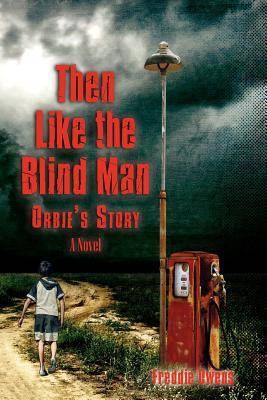

Then Like the Blind Man: Orbie's Story
by Freddie Owens
'Then Like the Blind Man: Orbie's' Story tells the story of a downtrodden nine-year-old who is sent from the city to live with his grandparents in the outback of Kentucky, taking few possessions yet a heart and soul chock-full of hatred for black people. But his grandparents are mavericks of the 1950s south; transforming Orbie into a young man that battles through the demons of his generation to embrace compassion and racial equality. Synopsis: A storm is brewing in the all-but-forgotten back country of Kentucky. And, for young Orbie Ray, the swirling heavens may just have the power to tear open his family's darkest secrets. Then Like the Blind Man: Orbie's Story is the first person account of a white youth cast aside in the segregated South of the 1950s, and the forces he must overcome to restore order in his world. Nine-year-old Orbie already has his cross to bear. After the death of his father, his mother Ruby has off and married Victor, a slick-talking man with a snake tattoo. Orbie hates his stepfather more than he can stand, a fact that lands him at his grandparents' place in Harlan's Crossroads, Kentucky. Orbie grudgingly adjusts to life with his doting Granny and carping Granpaw, who are a bit too keen on their black neighbors for Orbie's taste, not to mention the local Pentecostal congregation of snake handlers. Soon, however, he finds his worldviews changing, particularly when it comes to matters of race, religion and the true cause of his father's death. Equal parts Hamlet and Huckleberry Finn, Then Like the Blind Man is certain to resonate with lovers of literary as well as historical fiction, particularly in the grand Southern tradition of storytelling. While fiction about the 1950s Civil Rights era is far from rare, few capture the period and struggles from the perspective of a white child. In 'Then Like the Blind Man: Orbie's Story', Freddie Owens depicts the coming-of-age of one nine-year-old protagonist whose story transcends fiction to capture the shifting racial prejudices that turned would-be racists into a generation that embraced racial equality.
Release Date:
July 30, 2012

